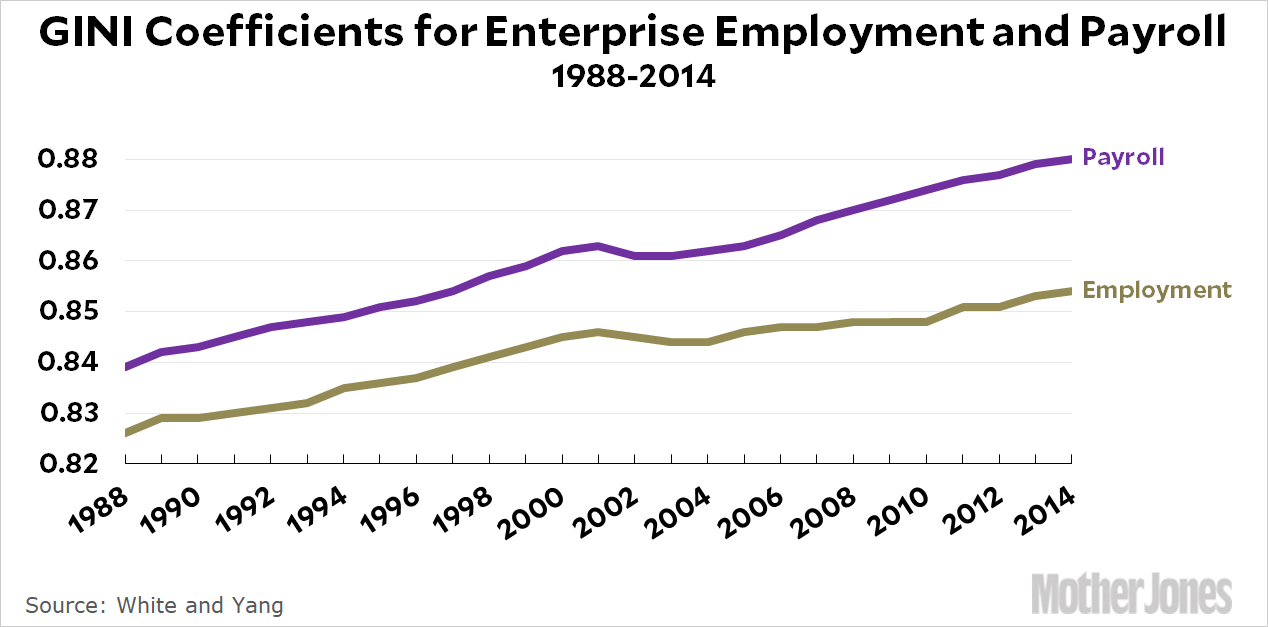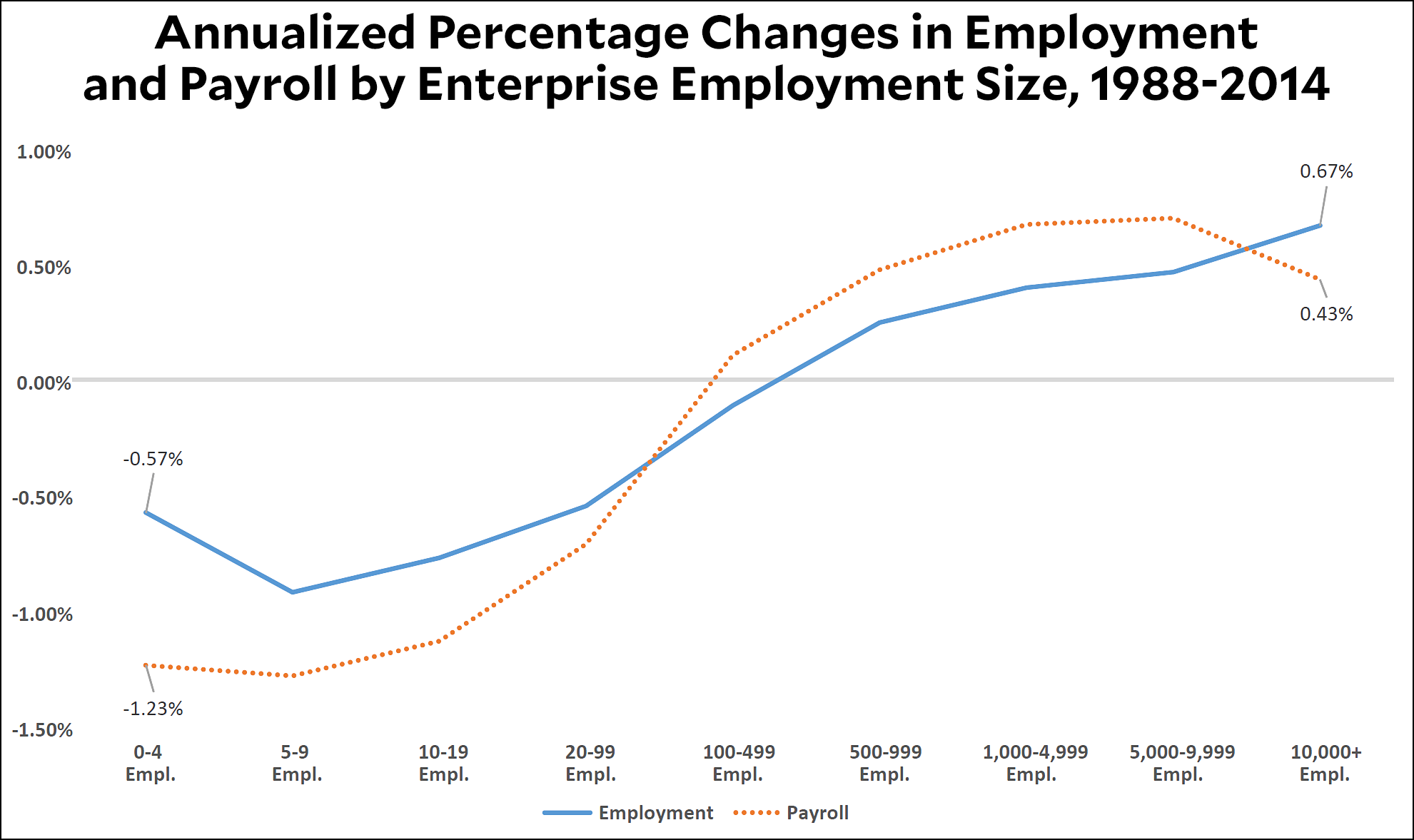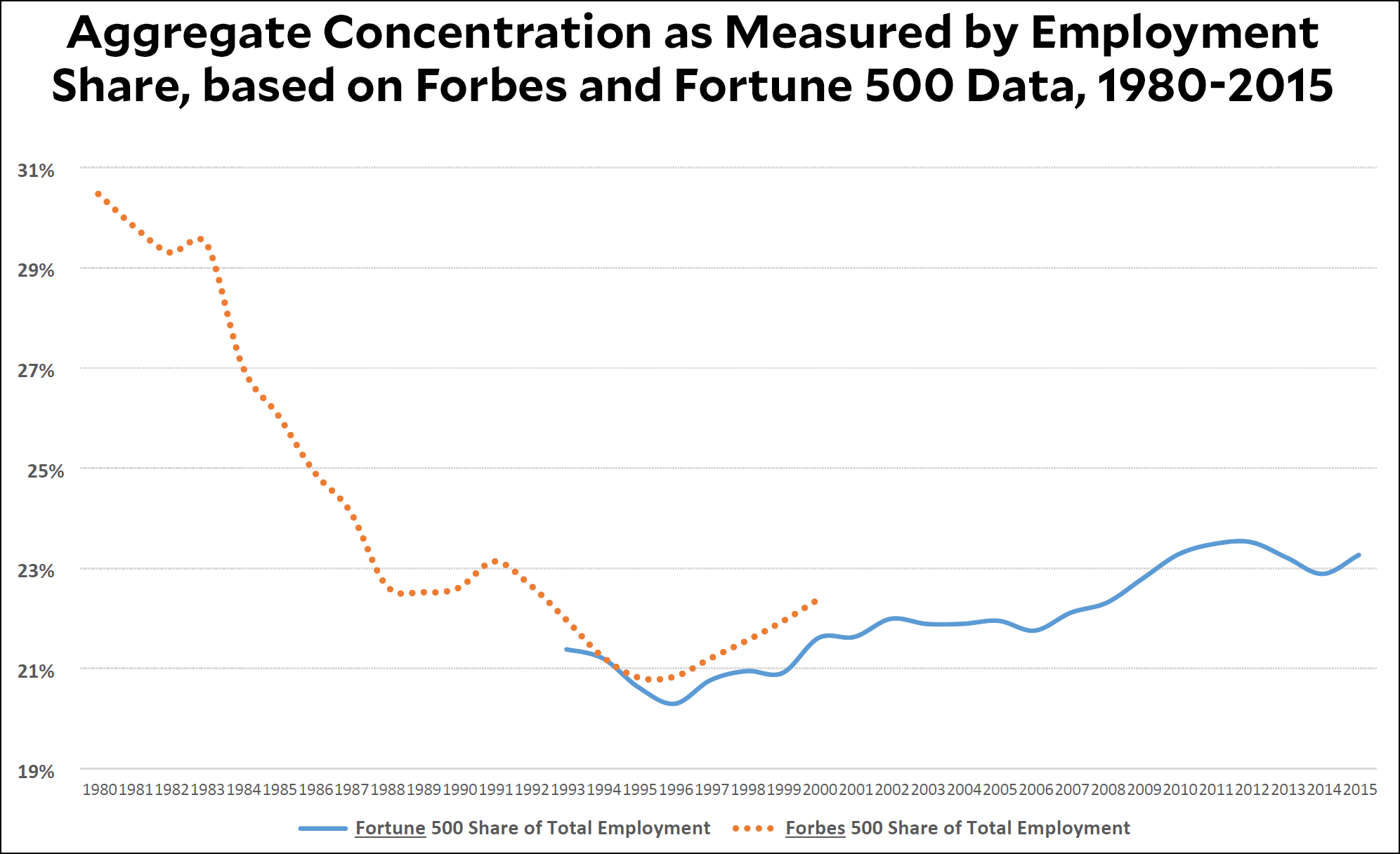Is American business more concentrated than in the past? That is, do big companies control more of the market and therefore wield more market power? A knowledgable correspondent recommends a new paper by “the guru on measuring concentration in the U.S.” It contains several measures of concentration, but it seems like the best is their calculation of a GINI coefficient. This is the same GINI that’s typically used to measure income inequality. Zero means every business is of equal size while one means a single business controls the entire market. Here it is for the past three decades:

This suggests that concentration has been steadily increasing since at least 1988. And that’s exactly what the authors, Lawrence White and Jasper Yang, conclude: “We find that there has indeed been a moderate but continued increase in aggregate concentration since the mid 1990s.”
But that’s not the whole story. White and Yang also say a few other things:
- “The level of aggregate concentration in the U.S. economy has little connection to the state of competition in relevant markets and thus to antitrust policy in the U.S.”
- Since 1988, big companies have gotten bigger and small companies have gotten smaller. The difference is fairly dramatic:

Over time, these changes add up. Since 1988, big companies have outgrown small companies by 30-40 percent.
- However, when you look at simpler measures of size, there’s not much to see. Total employment and payroll of the biggest companies has changed only slightly.
- The oddest finding involves a measure of concentration of Forbes 500 and Fortune 500 companies. This goes back to 1980 and suggests that market concentration declined by a huge amount from 1980 to about 1995. The decline is so big that we haven’t come close to making it up since then:

I have to say that this seems really unlikely. Corporate concentration plummeted by a third during the 80s? Something sure doesn’t seem right about that. But this is what White and Yang report.
I’m not quite sure what to make of all this. It seems clear, based on all the measurements in the paper, that corporate concentration has grown over the past three decades by a moderate amount. Whether that’s enough to make a significant difference in political power or levels of innovation is hard to say.¹ That’s a subject for another paper.
But the allegedly huge decline in corporate concentration during the 80s seems very peculiar. Is this an artifact of deindustrialization? Or is it an economy-wide phenomenon? Or, perhaps, just a mistake of some kind, since it doesn’t seem to show up in the other data? Good question.
¹To repeat something I said the other day, I don’t necessarily think that bigger, more oligopolistic companies are bad for consumers. Prices might very well go down and product choice might very well go up. My concerns are broader. I think a decline in competition leads to less long-term innovation and to a dangerous rise in power over policymaking.
It’s possible, of course, that none of this matters very much since business is so global these days. Even if big American firms push small American firms out of business, they still have to compete with overseas firms. In that sense, it may be that corporate concentration in America has gone up but competitive pressures haven’t declined.


















